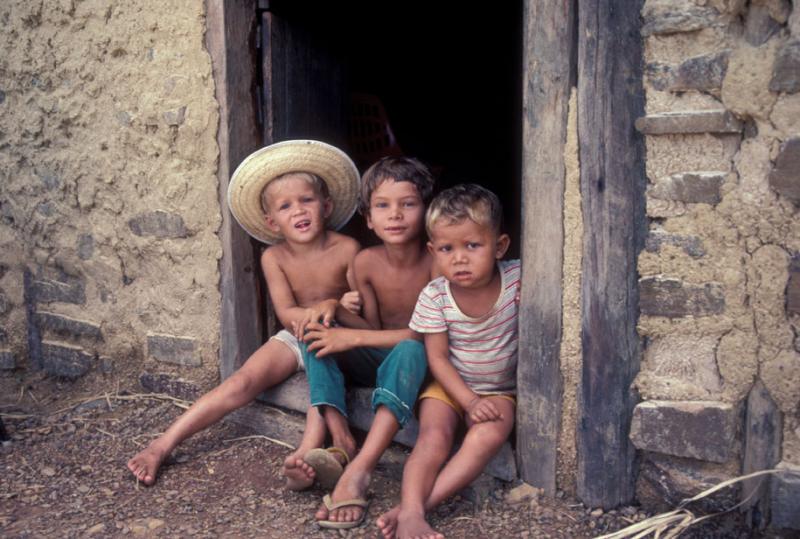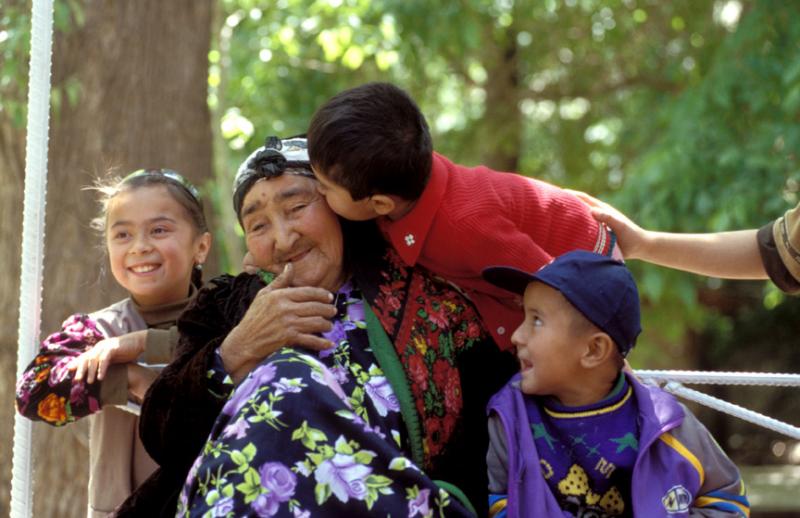Children in kinship care have 54% fewer odds of experiencing mental illness and are 1.9 times more likely to report positive emotional health than children in regular foster care.




Photo credit: Yosef Hadar, Anvar Ilyasov
Why is kinship care important for children removed from their homes due to maltreatment?
Kinship care (family and friends care) is caregiving of children who must be separated from their parents by relatives, members of their tribe or clan, godparents, step-parents, or other adults with whom the child has a kinship bond. It is different from traditional foster care in which the foster parents are not related to the child. While kinship care is a normal practice in many cultures, formal kinship has become the placement of choice among those in the child welfare field and countries are adopting kinship care policies.
Does kinship care work?
Children in kinship care are less likely to experience mental health problems and are more likely to report positive emotional health. In addition, children in kinship care have a lower number of overall placements and more placement stability.
Equity: does collaborative care work in the disadvantaged?
Kinship care programs target children who are disadvantaged because of their experiences of abuse, maltreatment, or neglect. Kinship is effective in reducing the number of placements compared to foster care and children in kinship care experience better mental and emotional health.
Intervention Delivery
- The review included formal kinship care placements (both licensed/paid and unlicensed/unpaid) compared to standard foster care placements where the caregivers are not related to the child.
Population and Setting
- Almost all the studies (57 of 62) were conducted in the US with additional studies in Norway, Israel, Sweden, the Netherlands, and Australila
- Included participants were children and youth under the age of 18 who have been removed from their homes for abuse, neglect, or other maltreatment.
- Most of the children lived in urban settings (80%).
Summary of Findings [SOF] Tables: Kinship care for safety, permanency, and well-being of children removed from the home due to maltreatment Patient or population: Children under 18
Settings: high income countries
Intervention: Kinship care
Comparison: Usual foster care | Outcomes | | Anticipated absolute effects per year | Odds Ratio
(95% CI) | No of Participants
(studies) | Quality of the evidence
(GRADE) | | | | Risk without kinship care (Control) | Risk difference with kinship care (95% CI) | | | | | Psychiatric disorders (dichotomous) | | 26 per 100 | 12 fewer per 100 (from 11 to 13 fewer) | OR 0.46 (0.44-0.49) | 50,131 (4) | High | | Well-being (dichotomous) | | 61 per 100 | 16 fewer per 100 (from 16 to 17 fewer) | OR 0.52 (0.51-0.53) | 317,870 (3) | High | | Placement stability: Placement settings (3 or more placements) | | 29 per 100 | 16 fewer per 100 (from 12 to 19 fewer) | OR 0.36 (0.27-0.490 | 11,808 (4) | High | | Placement stability: Reentry | | 39 per 100 | 16 fewer per 100 (from 1.5 to 33 fewer) | OR 0.29 (0.09-0.94) | 88 (1) | Moderate | | Permanency: Adoption | | 12 per 100 | 7 fewer per 100 (from 0.5 to 10 fewer) | OR 2.50 (1.05-5.94) | 58,645 (6) | Moderate | | Adverse Events: None reported. |
1. Only one study reported on this outcome. Wide confidence interval.
2. High heterogeneity (98%) Relevance of the review for disadvantaged communities Children in kinship care have 54% fewer odds of experiencing mental illness and are 1.9 times more likely to report positive emotional health than children in regular foster care. Kinship care programs target children who are disadvantaged because of their experiences of abuse, maltreatment, or neglect. | | Findings | Interpretation | | Equity - Which of the PROGRESS groups examined | | All included participants were children and youth younger than 18 years. | Kinship care is effective for children who have been removed from their home due to abuse, maltreatment, or neglect. | | Equity Applicability | | This review only examined formal kinship care placements and therefore the effects of informal or private kinship care arrangements are not included. | The benefits of informal kinship care placements are unknown. Policymakers implementing kinship care programs should focus on formal placements. | | Children in kinship care placements experience better mental and emotional health, fewer behavioural problems, and placement stability. However, kinship care is not recommended in all circumstances and instead the social worker needs to use their professional judgment to determine whether the kin caregivers are able to meet the needs of the child. | Kinship care is effective but does not replace the value of standard foster care for all children. Kinship care is a program that can be added to regular foster care services and used when possible – when there is an appropriate kin caregiver. Regular foster care should be considered if the available kinship placement will not meet the needs of the child. | | All of the included studies were conducted in high-income countries. | The applicability of the results for low- and middle-income countries is not known. | | Cost-equity | | The review did not report on the cost-equity or cost-effectiveness of kinship care. However, most of the kinship care placements were unpaid compared to foster care placements. There may be cost-effectiveness for kinship care because of better wellbeing of the children and lower service utilization. | For disadvantaged families, unpaid kinship care can place additional stress on the families because of the additional responsibilities and costs associated with caring for a child. This may explain lower rates of health and development services experienced by children in kinship care. Policymakers wishing to implement kinship care programs as part of the foster care program may wish to consider providing kinship care families with the same resources provided to standard foster care families to ensure the child receives all possible benefits. |
Comments on this summary? Please contact Jennifer Petkovic. |
|
![]()
![]()


